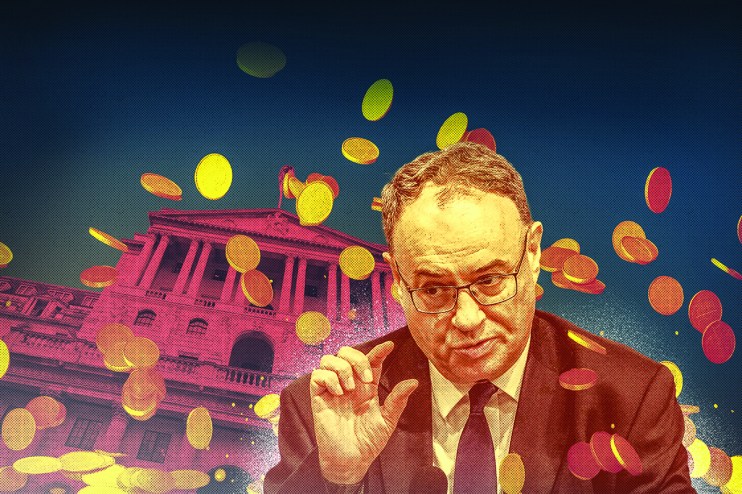The Bank of England decision that really matters this week

The Bank of England’s interest rate decision later this week looks like a done deal. But there is another, arguably more important, decision you should be paying attention to, Chris Dorrell writes
The Bank of England’s interest rate decision later this week looks like a done deal, with traders more or less certain that the Bank Rate will be left at 5 per cent.
The Bank cut rates last month, but policymakers have signalled they will take a cautious approach in the months ahead.
There are a few unknowns as Thursday’s decision approaches. August’s inflation reading, due out on Wednesday, could bolster the case for a cut, particularly after last week’s unexpectedly weak GDP figures.
The headline rate is expected to remain at 2.2 per cent, but if the figure comes in meaningfully below expectations, a few, but not a majority, of rate-setters might be tempted to back a cut.
Furthermore, Jonathan Haskel – one of the Monetary Policy Committee’s (MPC) more hawkish members – left the rate-setting body, to be replaced by Alan Taylor. It is not clear what Taylor’s stance on rates will be, but he could easily be more dovish than Haskel.
Nevertheless, a hold looks more than likely. So does that make this week’s MPC meeting a non-event? Not exactly.
The Bank will also make its latest decision on the speed of quantitative tightening (QT) for the next year, a decision that could have important political implications.
QT is the process through which the central bank unloads the stock of government bonds bought up over the course of the past 15 years or so.
The Bank has already reduced the size of its balance sheet from a peak of £895bn on the eve of the pandemic to £688bn at the moment, but more is on the way.
The Bank can lower its stock of government debt in two ways. It can simply wait and allow its stock of bonds to reach maturity (passive QT) or it can also actively sell bonds back into the market (active QT).
Although the Bank’s long-term projections for the total cost of QT are largely unaffected by the weighting of active and passive QT, changing the weighting distributes the costs unevenly across the time horizon.
Broadly speaking, if the Bank actively sells more gilts then the costs of QT are front-loaded. That’s because the Bank has to crystallise a loss on gilts that have fallen in value as interest rates have climbed.
Over the past couple of years the total annual stock of QT has been set at £100bn. Last year, this was split equally between active and passive sales.
Markets expect the total stock of QT to remain at £100bn in the year ahead. However, there’s £87bn worth of bond redemptions due in the coming year (passive QT), which implies that active sales would fall to £13bn, a substantial fall.
Conversely, analysts at Deutsche Bank think the Bank will opt for £127bn worth of QT, which would involve £40bn of active sales, which is more or less consistent with the past two years.
Remember, any costs of the QT programme are shouldered by the Treasury and are factored into the Office for Budget Responsibility’s (OBR) fiscal forecasts.
The OBR’s forecasts try and assess the pace of QT over the medium term, so the pace of active sales over the next year won’t necessarily impact the Chancellor’s headroom unless the OBR changes its assumptions in response.
If the OBR were to assume a slower pace of active sales over the next five years (£13bn annually, say), Deutsche Bank suggests this would result in a net saving of £10bn compared to the OBR’s current projection.
That’s a significant difference that has important consequences for the division between monetary and fiscal policy. After all, why should the government’s tax and spend policies be influenced by the pace at which the Bank of England wants to sell government bonds back into the market?
Indeed, the biggest consequence of this week’s MPC meeting could be that it provides the prompt for Rachel Reeves to tweak her fiscal rules so that it excludes the fiscal impact of QT.
This would free up around £17bn, according to Oxford Economics.
Either way, Thursday’s meeting will be hugely important, even if it is very likely rates will be left on hold.